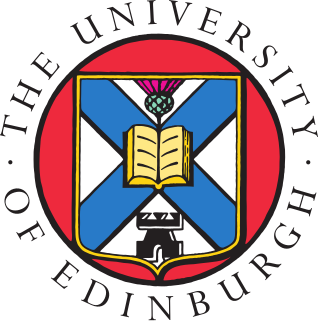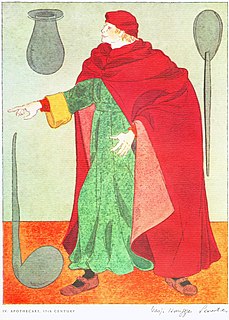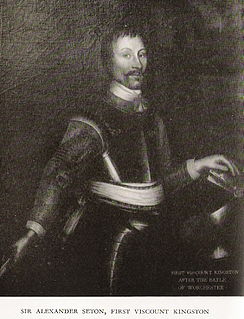This article relies largely or entirely on a single source .(June 2008) |
James Cockle (17 July 1782 – 8 December 1854) was a prominent British surgeon and father of eventual Chief Justice of Queensland, Sir James Cockle.
This article relies largely or entirely on a single source .(June 2008) |
James Cockle (17 July 1782 – 8 December 1854) was a prominent British surgeon and father of eventual Chief Justice of Queensland, Sir James Cockle.
Cockle was born in Woodbridge, Suffolk to Andrew Cockle—a vintner —and his wife, Anne. He went up to the University of Edinburgh in 1801 and began practising as a doctor in 1805. [1] He became the parochial surgeon at Great Oakley, Essex before moving to London in the early 1820s.

Woodbridge is a town in Suffolk, East Anglia, England, about 8 miles (13 km) from the sea coast. It lies along the River Deben and has a population of about 11,000. The town is served by Woodbridge railway station on the Ipswich–Lowestoft East Suffolk Line. It lies within a short distance of the wider Ipswich urban area. Woodbridge is close to some of the major archaeological sites for the Anglo-Saxon period, one of which produced the Sutton Hoo burial ship. The town's 1100 years of recorded history have bequeathed a variety of historical architecture. There are facilities for boating and for riverside walks by the River Deben.

The University of Edinburgh, founded in 1582, is the sixth oldest university in the English-speaking world and one of Scotland's ancient universities. The university has five main campuses in the city of Edinburgh, with many of the buildings in the historic Old Town belonging to the university. The university played an important role in leading Edinburgh to its reputation as a chief intellectual centre during the Age of Enlightenment, and helped give the city the nickname of the Athens of the North.

Great Oakley is a village and civil parish in the Tendring district of Essex, England. It is a long, narrow parish lying on the top of a low ridge south of Ramsey Creek which drains northeast towards Harwich. The parish extends south to Oakley Creek, a branch of Hamford Water, where stood Great Oakley Dock, now disused.
Initially working as an apothecary in Hackney, Cockle moved to New Ormond Street in 1829 and developed an extremely successful medical firm. By 1837, his clients included some of the capital's most influential people. These included:

Apothecary is one term for a medical professional who formulates and dispenses materia medica to physicians, surgeons, and patients. The modern pharmacist has taken over this role. In some languages and regions, the word "apothecary" is still used to refer to a retail pharmacy or a pharmacist who owns one. Apothecaries' investigation of herbal and chemical ingredients was a precursor to the modern sciences of chemistry and pharmacology.

The London Borough of Hackney is a London Borough in Inner London, United Kingdom. The historical and administrative heart of Hackney is Mare Street, which lies 5 miles (8 km) north-east of Charing Cross. The borough is named after Hackney, its principal district.

William Lamb, 2nd Viscount Melbourne, was a British Whig statesman who served as Home Secretary (1830–1834) and Prime Minister. He is best known for being prime minister in Queen Victoria's early years and her coaching in the ways of politics. Historians have concluded that Melbourne does not rank highly as a Prime Minister, for there were no great foreign wars or domestic issues to handle, he lacked major achievements, he enunciated no grand principles, and his involvement in several political scandals as Victoria's private secretary.

Charles John Huffam Dickens was an English writer and social critic. He created some of the world's best-known fictional characters and is regarded by many as the greatest novelist of the Victorian era. His works enjoyed unprecedented popularity during his lifetime, and by the 20th century critics and scholars had recognised him as a literary genius. His novels and short stories are still widely read today.
Other prominent figures who were clients of Cockle included one Archbishop, seven Dukes, fifty-six lesser peers, fourteen bishops and three other Cabinet Ministers besides those above.
Cockle married Elizabeth Moss in 1814 and the couple had five sons and a daughter:
Cockle died on 8 December 1854 at 18 New Ormond Street, Queen Square, London with an estate of £37,085, approximately £2.6 million with inflation adjusted as of 2008. [2] His business become a limited company in 1917 but closed around 1960.

The Dean Cemetery is a historically important Victorian cemetery north of the Dean Village, west of Edinburgh city centre, in Scotland. It lies between Queensferry Road and the Water of Leith, bounded on its east side by Dean Path and on its west by the Dean Gallery. A 20th-century extension lies detached from the main cemetery to the north of Ravelston Terrace. The main cemetery is accessible through the main gate on its east side, through a "grace and favour" access door from the grounds of Dean Gallery and from Ravelston Terrace. The modern extension is only accessible at the junction of Dean Path and Queensferry Road.

Marquess of Linlithgow, in the County of Linlithgow or West Lothian, is a title in the Peerage of the United Kingdom. It was created on 23 October 1902 for John Hope, 7th Earl of Hopetoun. The current holder of the title is Adrian Hope.

Earl Howe is a title that has been created twice in British history, for members of the Howe and Curzon-Howe family respectively. The first creation, in the Peerage of Great Britain, was in 1788 for Richard Howe, but became extinct on his death in 1799. The second creation, in the Peerage of the United Kingdom was in 1821 for Richard Curzon, and remains current.

Ormond College is the largest of the residential colleges of the University of Melbourne located in the city of Melbourne, Victoria, Australia. It is home to around 350 undergraduates, 90 graduates and 35 professorial and academic residents.
Baron Beresford is a title that was created three times for the Beresford family, one in the Peerage of Ireland and later also two in the Peerage of the United Kingdom. In all instances it was created for men who were eminent politicians or soldiers. The first creation still exists as a subsidiary title, but the latter two became extinct at the death of their original holder.

Thomas Butler, 10th Earl of Ormonde, 3rd Earl of Ossory, Viscount Thurles, was an Irish peer and the son of James Butler, 9th Earl of Ormond and Lady Joan Fitzgerald daughter and heiress-general of James FitzGerald, 10th Earl of Desmond. He was Lord Treasurer of Ireland and a very prominent personage during the latter part of the 16th century.

Sir James Cockle FRS FRAS FCPS was an English lawyer and mathematician.
The following lists events that happened during 1928 in Australia.

John Henry Thomas Manners-Sutton, 3rd Viscount Canterbury styled The Honourable John Manners-Sutton between 1814 and 1866 and Sir John Manners-Sutton between 1866 and 1869, was a British Tory politician and colonial administrator.
Barry John Yelverton, 3rd Viscount Avonmore was an Irish nobleman.

Sir John Pratt (1657–1725) was an English judge and politician. He was Lord Chief Justice of England from 15 May 1718 until 2 March 1725. He was appointed as an interim Chancellor of the Exchequer on 2 February 1721 until 3 April 1721.

Thomas Anson, 1st Viscount Anson was a British politician and peer from the Anson family.
Walter Butler, 11th Earl of Ormond and 4th Earl of Ossory, was an Irish peer, the son of John Butler of Kilcash and Katherine, the daughter of Cormac na Haoine MacCarthy Reagh. He inherited the earldom because his uncle Thomas had died without legitimate male issue.

Sir Alexander Seton, 1st Viscount of Kingston, a Cavalier, was the first dignity Charles II conferred as King.
Roger Jones, 1st Viscount Ranelagh PC (Ire) was a member of the Peerage of Ireland and lord president of Connaught. He was Chief Leader of the Army and Forces of Connaught during the early years of the Irish Confederate Wars. In addition to Viscount Ranelagh, he held the title Baron Jones of Navan.
George Berkeley, 1st Earl of Berkeley PC FRS was an English merchant and politician who sat in the House of Commons from 1654 until 1658 when he succeeded to the peerage.
Charles Stanley Monck, 1st Viscount Monck, was born in 1754 and died on 9 June 1802. He was the 1st son of Thomas Monck MP, by his wife Judith Mason, daughter of Robert Mason, of Mason Brook

"Butler dynasty" refers to the several branches of the Butler family that has its origins in the Anglo-Norman family that participated in the Norman invasion of Ireland in the 12th century. Variant spellings include le Boteler and le Botiller. The surname has its origins in the hereditary office of Butler of Ireland. The family originates with Theobald Walter, 1st Chief Butler of Ireland. Many of the branches eventually begin to extend out to various countries in Europe and North America as many descendants immigrated out of Ireland and England in later years.
Charles RochemontAikin (1775–1847) was an English doctor and chemist.
Sir Thomas Smith, 1st Baronet, was an eminent British surgeon.